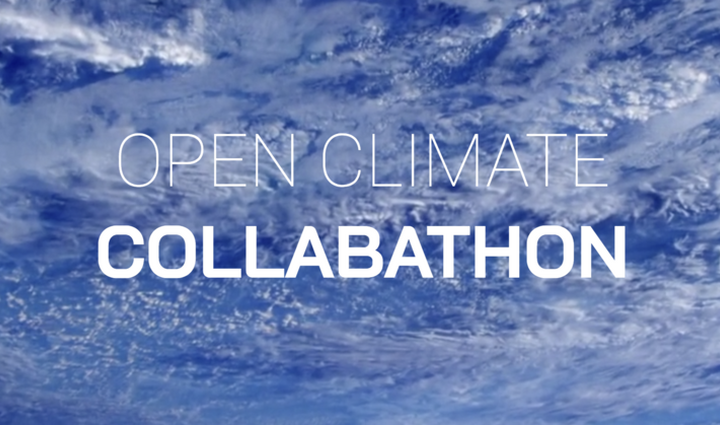Yale OpenLab Launches a Global Hackathon to Fight Climate Change with “Radical Collaboration”
A first-of-its-kind event will connect technologists, policy experts, students, and others around the globe in a shared effort to build an open source platform for transparent climate accounting — with the goal of tracking progress toward the targets set in the Paris Agreement.

The Yale OpenLab is launching a new kind of hackathon — termed a collabathon for its commitment to what organizers call “radical collaboration” — on November 15. It’s embarking on the first global effort to build an "Open Climate Platform" designed to track accountability to carbon budget pledges using integrated insights from blockchain, IoT tools, AI, and big data. The platform would be more comprehensive than anything created to date, enabling a wide variety of actors to record their climate efforts, including countries, corporations, states, cities, and small businesses. The goal is to reconcile climate records and functions using a distributed ledger technology (a consensus of shared data across multiple sites) in pursuit of maintaining a transparent, decentralized global carbon ledger. The event’s organizers see this as key to executing on the 2015 Paris Agreement’s target of maintaining anthropogenic warming below 1.5oC. A more cohesive and transparent system, they say, will address two critical issues: a lack of trust between actors, who may resist sharing data that exposes them to scrutiny, and the overwhelming effort currently required to update yearly data fields to meet reporting requirements.
Yale OpenLab is catalyzing a growing network of partners including Data Driven Envirolabs, Energy Web Foundation, Democracy Earth, Verses.io, and other integrated platforms as well as universities within the Global Network for Advanced Management. These partners will host a decentralized, two-week collabathon sprint leading up to the UNFCCC COP25 summit (the United Nations Climate Change Conference), where the platform project and collaborative initiative will be presented. In the period from November 15 to the conference’s start, hackers and subject matter experts across the U.S., Australia, Germany, France, and Singapore will participate in a collective effort to build out the core parts of an integrated open climate accounting system.
“The goal is to provide general transparency alongside individual data privacy, prevention of double-counting in the digital certification and trading of climate actions, and a platform for contractual automation of rules and mechanisms with a financial nature — from Paris Agreement stock-taking to carbon pricing and trading for mitigation outcomes,” said Dr. Martin Wainstein, founder and lead researcher at the Yale OpenLab.
“We are calling this event a collabathon, as opposed to a hackathon, as the project is based on principles of radical inclusivity and equality at the planetary level,” he added. “We are all stakeholders of this planet, and unlike a hackathon where the winner takes all, we want to leverage collective intelligence and crowd-development to complete multiple challenges toward a shared goal.”
While the Yale OpenLab is hosting this year’s event, the OpenLab team sees it as a collectively owned effort, with the hope that participants will stay engaged beyond the first collabathon. Going forward, the OpenLab will invite other organizations to host collabathons. “This year we are expecting 250 participants worldwide, with a vision to scale up,” said Wainstein. “We welcome students, individual participants, organizations, and governments to get involved.”
About the Yale OpenLab
Incubated in collaboration with the Tsai Center for Innovative Thinking at Yale, the Yale Center for Business and the Environment, and diverse partners at Yale and beyond, Yale OpenLab develops and incubates open-source projects that seek to address the planet’s most pressing big-picture challenges. The OpenLab brings together emerging technologies — including blockchain, the Internet of Things, and virtual reality — with systems thinking and design thinking, aiming to create collaborative models of innovation that can scale. Currently, the lab’s projects and programs are focusing on climate and energy.
Learn more about the collabathon — and register to participate — here.